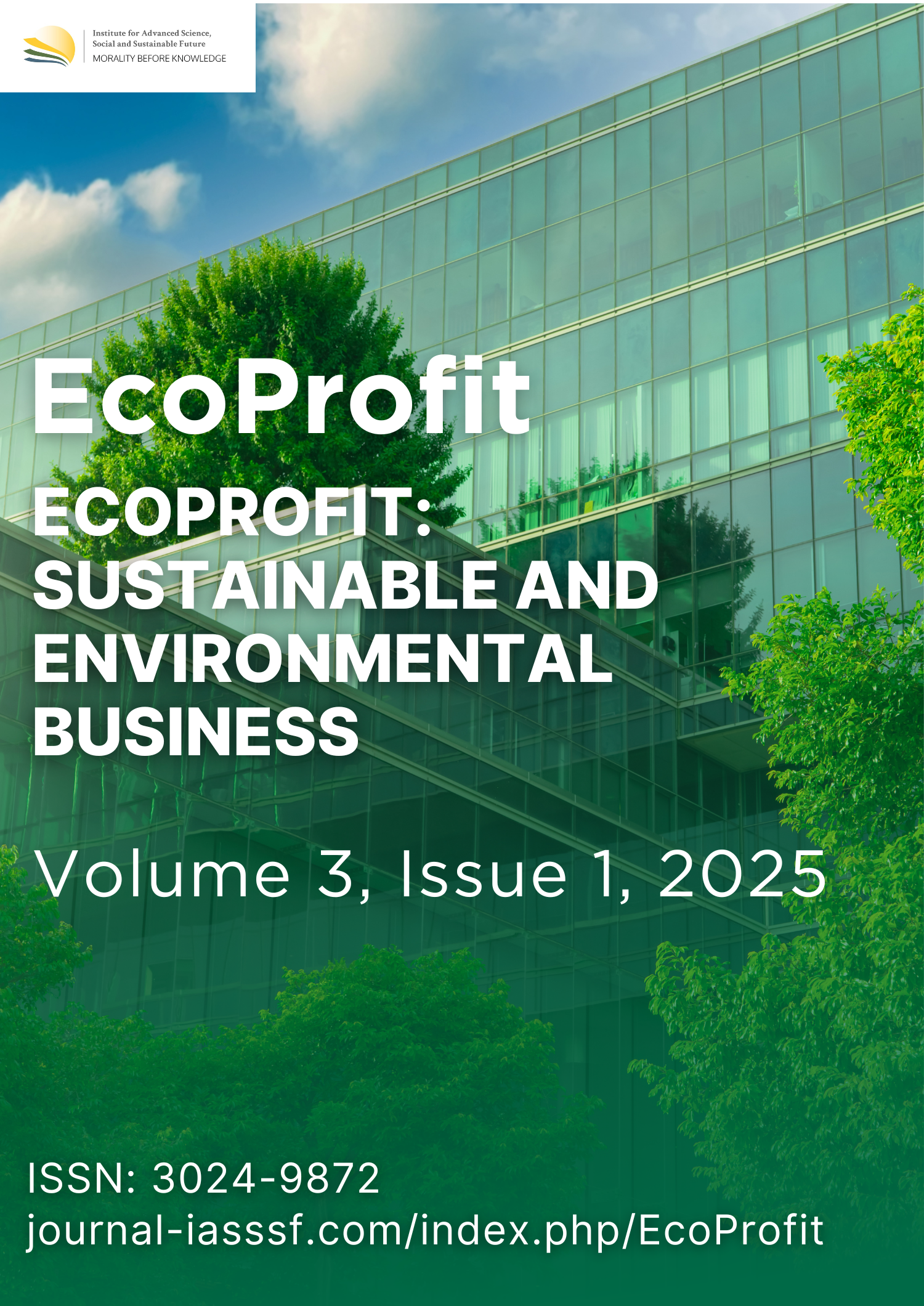Circular economy transition through community-based ecopreneurship empowerment model: Reconstructing the environmental care community
DOI:
https://doi.org/10.61511/ecoprofit.v3i1.2025.2152Keywords:
circular economy, ecopreneurship, communityAbstract
Background: The transition to a circular economy requires an approach that is not only concept-based but also practical and community-empowering. This study aims to design a community-based sustainable entrepreneurship (ecopreneurship) empowerment model as a strategy for transitioning to a circular economy, with case studies of various environmentally conscious communities in Indonesia. Method: The research approach employs a qualitative case study method, comprising the following stages: identifying the problems faced by the community, formulating solutions based on circular economy principles, and validating these solutions through consultation with relevant government agencies, as well as comparing them with best practices and policies in other countries. Data collection techniques include in-depth interviews, participatory observation, and documentation studies. Findings: The research results indicate that the primary challenges faced by communities are limited market access and inadequate business capital for developing recycling-based entrepreneurial activities. The primary solution to this problem is to convert the business model into a cooperative or Badan Usaha Milik Desa (BUMDes), allowing it to access business capital from the government through collaboration and institutional support. These findings confirm that a community-based empowerment approach with policy validation has the potential to accelerate the adoption of an inclusive and sustainable circular economy. Conclusion: This study shows that a community-based ecopreneurship model can be an effective strategy in the transition to a circular economy. Institutional transformation into cooperatives or BUMDes opens up broader access to funding and institutional support. Novelty/Originality of the Article: This article combines a circular economy approach with applicable community-based institutional solutions. The policy validation conducted strengthens the position of this model as a reference for inclusive and contextual transition strategies.
Downloads
Published
How to Cite
Issue
Section
Citation Check
License
Copyright (c) 2025 Syahrir Akbar, Rehan Perdana Putra, Indah Marsya Nitha Saragih, Nadia Ranasti

This work is licensed under a Creative Commons Attribution 4.0 International License.















